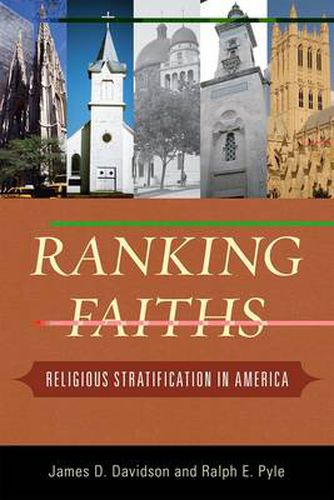Readings Newsletter
Become a Readings Member to make your shopping experience even easier.
Sign in or sign up for free!
You’re not far away from qualifying for FREE standard shipping within Australia
You’ve qualified for FREE standard shipping within Australia
The cart is loading…






Ranking Faiths: Religious Stratification in America discusses how religion shapes access to power, privilege, and prestige in the U.S., both historically and today. James D. Davidson and Ralph E. Pyle dispel the idea that the U.S. was founded on the principle of religious equality for all, documenting how religion has been a factor in the allocation of power from the colonial period through the present. From the time of the earliest settlements in America through today, the book demonstrates that some religious groups have had more access to economic, political, and social rewards than others, and they have benefited from laws and customs that have maintained religious inequality over time. While a few religious groups, such as Catholics and Jews, have experienced significant upward mobility over time, the social status of most has remained remarkably static over time. The book shows how religious inequalities developed, highlight where they remain in society today, and discuss what Americans can and should do about it.
$9.00 standard shipping within Australia
FREE standard shipping within Australia for orders over $100.00
Express & International shipping calculated at checkout
Ranking Faiths: Religious Stratification in America discusses how religion shapes access to power, privilege, and prestige in the U.S., both historically and today. James D. Davidson and Ralph E. Pyle dispel the idea that the U.S. was founded on the principle of religious equality for all, documenting how religion has been a factor in the allocation of power from the colonial period through the present. From the time of the earliest settlements in America through today, the book demonstrates that some religious groups have had more access to economic, political, and social rewards than others, and they have benefited from laws and customs that have maintained religious inequality over time. While a few religious groups, such as Catholics and Jews, have experienced significant upward mobility over time, the social status of most has remained remarkably static over time. The book shows how religious inequalities developed, highlight where they remain in society today, and discuss what Americans can and should do about it.